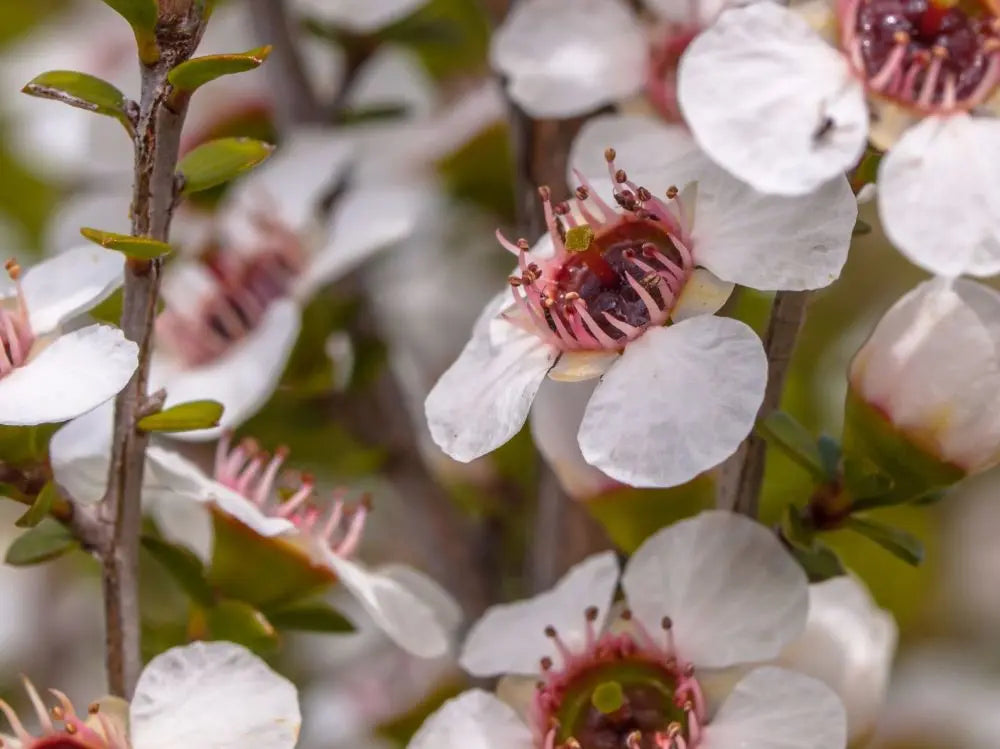We all know that Mānuka honey is delicious when spread over toast, used in hot drinks and eaten straight of the spoon. Chances are you might already know one or two other uses for your tasty honey – but let us introduce you to 7 uses for your Active Mānuka honey, you might have never known existed.
Stomach issues
Are you feeling bloated & uncomfortable, suffering from stomach cramps, pains or heart burn? Whatever digestion problem you may have, simply stir a teaspoon of Active Mānuka honey daily into a hot cup of water or tea to help relieve your symptoms.
Tickly Throat time
Trying to fight of a cold or sore throat? When taken orally, Mānuka’s natural antibacterial properties can help attack and stop bacteria in its tracks before having time to infect you. If you are already suffering from a sore throat or nasty cold, Mānuka honey can help soothe the pain and reduce inflammation with the help of hot water and lemon. .. or just a tablespoon. The higher activity level of the Mānuka will provide more anti-bacterial protection.
Skin Problems
Be it the kid’s acne, eczema, dry skin or rashes Mānuka can be used to help treat irritating skin ailments by directly applying the honey to the affected area. There is no bacteria that is resistant to Mānuka Honey, making it more effective than antibiotics and other traditional forms of medication.
Salon Facials are a ‘nice’ to have
Believe it or not Mānuka honey can work wonders for your skin in many ways. When used as a face mask Mānuka honey hydrates and softens the skin while its natural proteins, vitamins and minerals provide deep nourishment. After cleaning your face spread a thin layer of Mānuka honey, leave for 10-20 minutes then rinse your face with warm water. It will be the nicest tasting facial you will ever have (we recommend licking your lips after applying the mask… yum)
Sugar high
It’s no secret that everyone loves dessert and if you’re looking for a way to create healthier desserts by cutting out the sugar but you still want that deliciously sweet taste, Mānuka honey is the perfect substitute.
When substituting sugar for honey in your next recipe use ½ to ¾ cup of honey in place of 1 cup of sugar and reduce the liquid used by ¼ cup.
Ouch… that was hot. Burns
Whether it’s a minor burn from cooking last night’s dinner or something
more serious, Mānuka Honey’s antibacterial activity help protect a burn from becoming infected. It has the ability to repair damaged skin and regenerate new tissue. Mānuka ‘s anti-inflammatory properties also help in reducing the pain associated with burns.
The best way to apply honey to wounds is to spread it on a dressing pad and then place it on the wound. Daily apply another layer of honey, on top of the current layer – cover and dress.
Accident prone family
Cuts and scrapes occur all the time, sometimes without us even realising. You could be working in the garden when your hand brushes over a sharp stem or your child may have taken a tumble in the playground. Whether they hurt or not they are definitely irritating, but by applying Mānuka honey directly to the wound 3-4 times a day, its active healing properties will help protect the cut from further infection and allow it to heal faster.
Because not all honeys are created equal, you have to be careful about what to look for when purchasing Mānuka honey. NPA (No-peroxide Activity) reveals how strong and potent the active enzymes with the Mānuka honey are at fighting bacterial infections and inflammation. On a jar of honey you may see ‘TA’ or Total Activity. This number is calculated by combining both the peroxide and non-peroxide Activity levels of the Mānuka honey and should not be mistaken for representing the strength of the honey.
Love what you’re tasting?
Sign up to get delicious recipes, sweet wellbeing tips, and a free copy of our latest recipe book—delivered straight from our hive to your inbox.
It’s the easiest way to add a little more happiness to your day, naturally.
